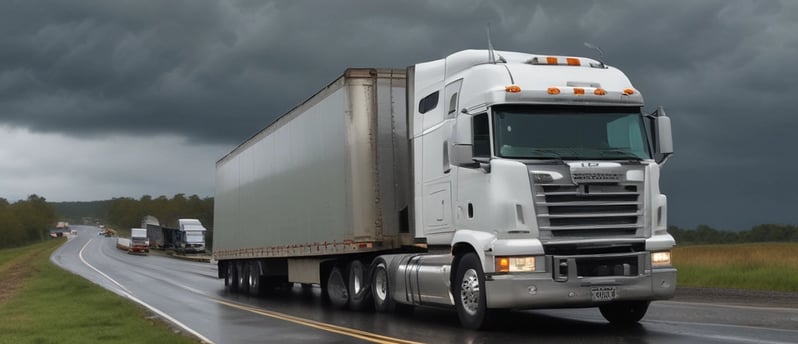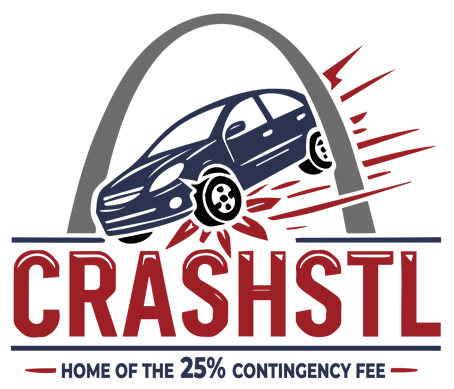Tractor Trailers and Their Impact on Truck Accidents
Tractor trailers, also known as semi-trucks or 18-wheelers, play a critical role in the trucking industry. They transport goods across highways and roads throughout the United States. However, their sheer size, weight, and operational complexities significantly influence the dynamics of truck accident cases.
12/5/20244 min read


Tractor Trailers and Their Impact on Truck Accidents
Understanding how different types of tractor-trailers contribute to truck crashes is essential in bustling hubs like St. Louis for determining liability, strengthening truck accident claims, and ensuring truck accident victims receive the compensation they deserve. This comprehensive guide delves into various types of tractor-trailers, their impact on accident severity, and legal considerations.
Types of Tractor Trailers
Understanding the distinct types of tractor-trailers is crucial for identifying the factors that lead to truck crashes and the subsequent medical expenses, lost wages, and damages victims face.
Dry Van Trailers
Description: Dry van trailers are enclosed trailers used to transport goods that do not require temperature control.
Common Uses: Electronics, clothing, household goods.
Accident Implications: The rigid structure of dry vans can lead to significant property damage and severe injuries in accidents. The force from the collision often transfers directly to passenger vehicles, causing traumatic brain injuries (TBI), broken bones, and other catastrophic injuries.
Refrigerated Trailers
Description: Equipped with refrigeration units, these trailers transport perishable goods.
Common Uses: Food products, pharmaceuticals.
Accident Implications: The added weight from refrigeration units affects braking and handling, increasing the risk of accidents. Spilled goods can create hazardous road conditions, complicating truck accident claims and requiring extensive cleanup efforts.
Flatbed Trailers
Description: Open platforms ideal for transporting oversized or irregularly shaped cargo.
Common Uses: Construction materials, machinery, vehicles.
Accident Implications: Improperly secured loads can shift, leading to severe truck crashes and multi-vehicle accidents. Additionally, flatbeds expose cargo to external elements, making collisions more dangerous.
Tanker Trailers
Description: Cylindrical trailers are used for transporting liquids or gases.
Common Uses: Fuel, chemicals, water.
Accident Implications: Tanker trailers often carry hazardous materials, increasing the risk of spills, fires, and explosions. Their cargo makes accidents more complex and dangerous, often involving insurance companies and regulatory investigations.
Lowboy Trailers
Description: Trailers with a lower deck height are designed for tall equipment transportation.
Common Uses: Heavy machinery, construction equipment.
Accident Implications: The low deck affects the vehicle's center of gravity, making it more prone to tipping during sharp turns or sudden stops.
Step Deck (Drop Deck) Trailers
Description: Trailers with varying deck heights for medium-height cargo.
Common Uses: Machinery, vehicles, construction materials.
Accident Implications: Proper load securing is critical, as shifting cargo can destabilize the trailer, causing rollovers or collisions.
How Tractor Trailer Types Influence Accident Severity
The type of tractor-trailer involved in an accident significantly affects the severity of injuries and property damage.
Weight and Size
Larger trailers like tankers and flatbeds carry immense weight, which magnifies the impact force during a collision. This results in severe injuries, such as spinal cord injuries, amputations, and TBIs, along with substantial damage to passenger vehicles.
Cargo Nature
Trailers carrying hazardous materials pose additional risks. Spills can lead to environmental contamination, fires, and chemical burns, complicating personal injury lawsuits and increasing medical expenses.
Load Security
Improperly secured loads on flatbeds or lowboys can shift during transit, causing the truck to lose control and leading to multi-vehicle accidents. Ensuring loads are balanced and fastened is critical to preventing catastrophic truck crashes.
Determining Liability in Tractor Trailer Accidents
Establishing liability in tractor-trailer accidents involves analyzing several factors, including driver negligence, trucking company responsibilities, and regulatory compliance.
Driver Negligence
Common forms of driver negligence include:
Distracted Driving: Using mobile phones or engaging in other distractions.
Speeding: Driving too fast for road or weather conditions.
Driving Under the Influence (DUI): Operating a vehicle while impaired by drugs or alcohol.
Fatigue: Drivers working long hours without adequate rest are more prone to errors.
Trucking Company Responsibility
Trucking companies are often liable for:
Vehicle Maintenance: Failing to inspect and repair brakes, tires, or other critical systems.
Safety Regulations: Not enforcing compliance with federal laws, such as those set by the Federal Motor Carrier Safety Administration (FMCSA).
Workload Management: Assigning unrealistic delivery schedules that cause driver fatigue.
Cargo Loading Practices
Improperly secured or overloaded cargo can lead to accidents. Trucking companies must ensure that cargo is loaded safely and complies with weight regulations.
Regulatory Compliance
Non-compliance with FMCSA regulations, such as exceeding driving hour limits or neglecting safety protocols, can strengthen truck accident claims against negligent parties.
The Role of Police Reports
A comprehensive police report is invaluable for building strong truck accident cases. It provides key details, including:
Accident Details: Time, location, and road conditions.
Fault Determination: An initial assessment of who is at fault.
Evidence: Photographs, skid marks, and damage descriptions.
CrashSTL’s truck accident law firm uses police reports to corroborate evidence, establish timelines, and strengthen claims for maximum compensation.
Increasing the Risk: Factors That Heighten Accident Severity
Several factors contribute to the severity of tractor-trailer accidents:
Poor Road Conditions: Potholes, uneven surfaces, and inadequate signage can cause drivers to lose control.
Adverse Weather: Rain, snow, ice, and fog reduce visibility and traction.
Mechanical Failures: Brake or braking system failures and tire blowouts can lead to uncontrollable situations.
Traffic Volume: High traffic in St. Louis increases the likelihood of truck crashes.
Passenger Vehicles vs. Tractor Trailers in Accidents
The size and weight disparity between passenger vehicles and tractor-trailers often result in devastating consequences for smaller vehicles.
Impact Force
The greater mass of tractor-trailers leads to higher impact forces, causing catastrophic injuries like TBIs and spinal cord damage.
Visibility Issues
Tractor trailers have significant blind spots, making it harder for drivers to see smaller vehicles, increasing the risk of collisions.
Maneuverability
Tractor trailers require longer stopping distances and have reduced agility compared to passenger vehicles.
Medical Expenses and Compensation
Victims of tractor-trailer accidents often face substantial medical expenses, including:
Emergency Room Visits: Initial treatment for life-threatening injuries.
Surgeries: Procedures to address internal bleeding, fractures, or organ damage.
Long-Term Treatment: Rehabilitation, physical therapy, and specialized care.
Psychological Support: Therapy to address trauma and emotional distress.
At CrashSTL, we work tirelessly to ensure victims secure maximum compensation to cover these expenses and other damages, including:
Lost Wages: Compensation for time missed from work.
Pain and Suffering: Damages for emotional and physical pain.
Why Choose CrashSTL?
CrashSTL stands out as a premier truck accident law firm in St. Louis, offering:
Low 25% Attorney Fee: Retain more of your settlement.
Experienced Legal Team: Expertise in complex truck accident cases.
Aggressive Advocacy: We don’t back down against insurance companies.
Comprehensive Support: From filing claims to courtroom representation, we handle it all.
Don’t Wait—Contact CrashSTL Today
If you or a loved one has been injured in a tractor-trailer accident, act now. CrashSTL’s team of truck wreck lawyers is ready to fight for your rights and secure the compensation you deserve. Contact us today for a free consultation.
Contact Us Today!
Contact an industry-best car accident lawyer for a fraction of the cost.
Keep more of your settlement.
